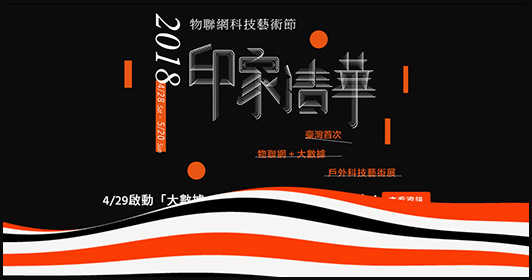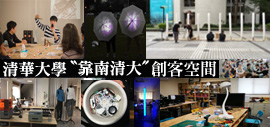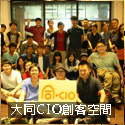LittleBits 是全世界最早的「吸鐵連接式電子小積木」。日前舉辦全世界創意比賽,冠軍是由台灣團對獲得,成員是林新建(北藝大兼任教師)與Fablab Dynamic黃聖傑(北藝新媒系校友)獲得。以下是他們的專訪。
原文:網址
We met Travis in person at Maker Faire San Mateo this year, although he has a littleBits community member for quite some time. He was recently accepted as a Chapter leader and hosted his first event around the BitOlympics– the competition he and his team eventually won!
Where are you based?
We are based in Taipei, Taiwan. Taipei is the capital of Taiwan and locates at northern part of this beautiful island country. With 2.6 million inhabitants, Taipei is also the center of politics, economics and culture in Taiwan. Our team members come from the newly formed littleBits Taipei Chapter and makers of Fablab Dynamic. Fablab Dynamic is one the most active Makerspaces in Taiwan.
What’s the maker scene in Taipei like?
The Maker Movement has became a popular topic over the past three years in Taiwan since the first Maker Faire held in 2013. More and more people join workshops conducted by different Makerspaces, Fablabs and Hackerspaces, which indicates the growing maker community in Taipei. The government of Taiwan and administration of Taipei City also put efforts to promote positive impacts by maker movement– not only from education point of view but also to encourage innovation in local community and in business.
What’s your maker superpower?
Our superpower comes from team work. Our team members come from diverse background. Jason, with professional experience of equipments in Fablab, did the circuit design together with Ting and Chin Ia. He and Bouyu also help to produce the 3D printed stuff used in this Exhalation Game — “Ai Dai Wan”. Hal and Jyun Siang contributed ideas in tuning the body of ship, modification of propelling system and made the water channel. Ting, Chin Ia and Bouyu made the final document together.
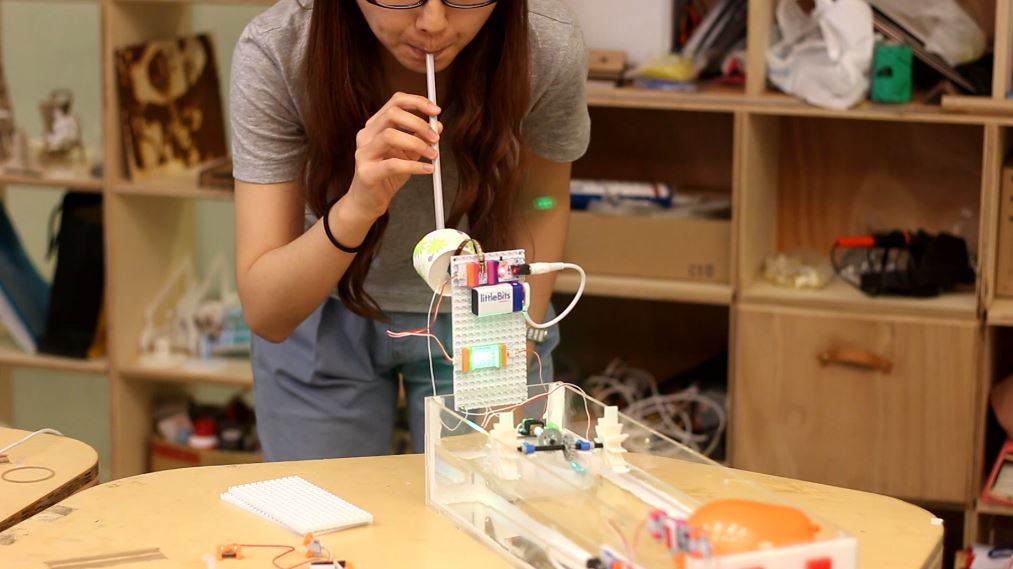
As the Taipei Chapter leader, a veteran with over 20 years experience in the IT industry, I initiated this project and conducted group discussions in four consecutive workshops. I’m also an active maker in Falab Dynamic. Overall, we worked as a team and tried to conduct core values of tinkering and making by this project. This gave us the superpower to achieve our goal and enjoyed wonderful experience in learning together.
What inspired you to make this project?
In Taiwan, we have Dragon Boat festival during May, in the Lunar calendar, to memorize the ancient patriotic poet, Chiu Yuan. May in the Lunar calendar is about the time in June by Gregorian calendar. What’s more, the Dragon Boat game is more like rowing in the Olympics and it gave us the inspiration for our project. Vital Capacity is very important for every athlete, so we attached a paper cup to a bend sensor in simulating the effort to row the boat ahead.
One of major project design concepts of littleBits Taipei Chapter, in the future, is to integrate different bits into ideas about local cultures and activities. We believe this will provide intuitive impact to local community by introduce digital tools, such as littleBits. The possible coherence of traditional life and modern equipments could be a very interesting topic to study.
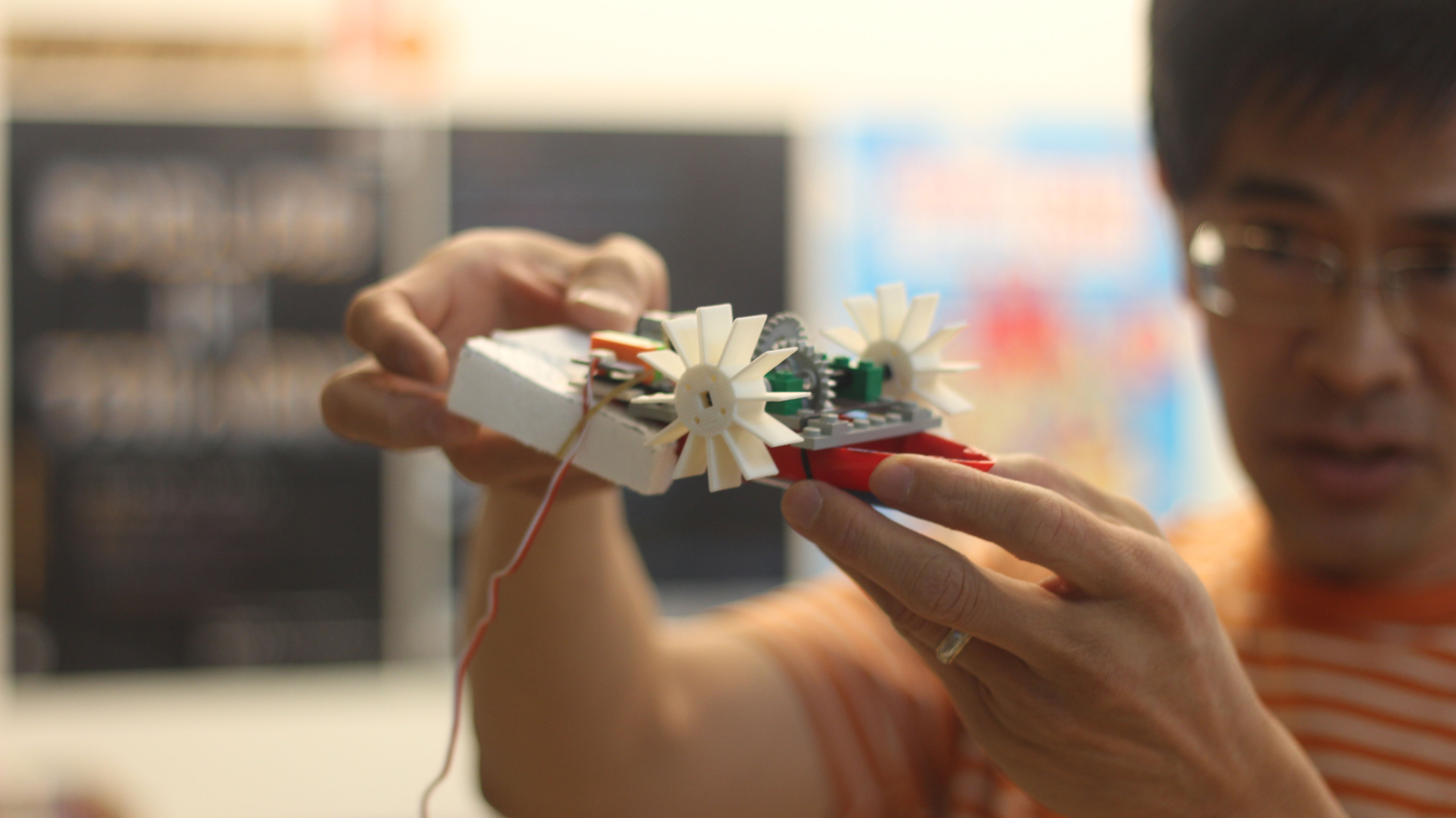
What was the experience of making this project like?
We enjoyed the progress of this project very much. We had fun, challenge, discussion, collaboration and experience sharing throughout the process. For all projects we had with littleBits, “Ai Dai Wan” definitely is the most exciting one for now.
In order to row a boat fast and steady one would need precise movements, and coherent respiration. With that in mind, we designed a small game to test not only one’s lung capacity but also other criteria such as the intensity and stability of ones exhalation where the players find out during the game.
What has littleBits taught you?
By inventing this project, we tried to immerse ourselves into design as a learning experience. We learned a lot from resources of the littleBits community, but most importantly we wanted to have this project done by free exploration. littleBits supported our inspiration and encouraged us to find alternative solutions for our designs and we tried to make the system better in a very short time. This is a huge advantage for projects and prototyping. littleBits gave us not only the flexibility but also efficiency to prove our concepts for this project.
Some of our team members were not familiar with electric circuits before, but they could easily select some of bits to help them in the design activity. This is very important in building confidence to explore cross-disciplinary activities.
Overall, we had the chance to practice the “creative process in design” (Mitch Resnick) by iteratively imaging, creating, playing, sharing and reflecting on our projects.
What’s next for you? What project are you dying to make?
We plan to keep having fun with littleBits, of course! We would love to share our passion with littleBits to more people. There are many projects that we would like to do by using littleBits. We plan to make some traditional arcades and Rube Goldberg machines with littleBits and join Maker Faire Taipei 2016.
Of course, integrating littleBits into education activities definitely is our long term goal.





